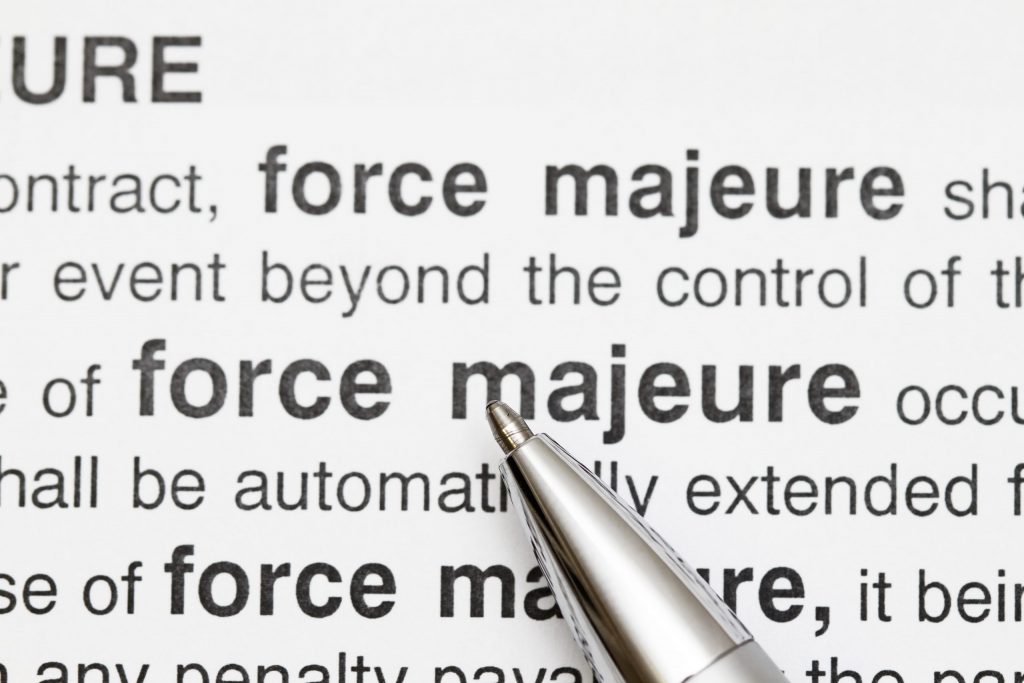Force Majeure: Radical Post-COVID Changes?
A Force Majeure clause addresses unexpected events beyond either party’s control that affects contractual performance. In common law jurisdictions, Force Majeure is a contractual remedy; in many civil law jurisdictions, Force Majeure is prescribed by code. Long seen as “boilerplate” in all jurisdictions, Force Majeure clauses only become “critical” in critical situations.
And we’ve had a few of those recently.
The rub is that, if the Force Majeure clause doesn’t address a given critical situation (e.g., COVID, named Storm Uri, or the occasional Sharknado), the parties are subject to the precise legal wording of the clause. “Triggering events” often include both natural disasters – such as floods, tornadoes, earthquakes, and hurricanes – and human-made disruptions – such as acts of terrorism, strikes, wars, riots, and insurrections.
(Yes, I said the word, “insurrection.”)
Some clauses – and some jurisdictions – require the triggering event to be “unforeseeable” and/or not “reasonably within [a Party’s] control.” Most clauses include a catch-all clause, often termed, “Acts of God”.
(The Reader may fairly question why God would incite tornados or acts of terrorism. Here, your author merely cites legal linguistic tradition.)
Smart lawyering will help craft (or interpret) the Force Majeure clause with a deftly-incorporated Governing Law that provides advantages for the client. Smart lawyers will also recognize which venues are most expansive or restrictive when interpreting such clauses. Focus on this clause: in the age of broken supply change, trade wars, unpredictable weather, and COVID, you can’t afford not to.
For a more in-depth review of Force Majeure – and some practical suggestions on drafting – please listen to my video presentation here. (Complimentary, of course.) For further assistance ensuring optimal protection with this and other contracts clauses, check out our Self-Help Resources or contact the Wallenstein Law Group today!






